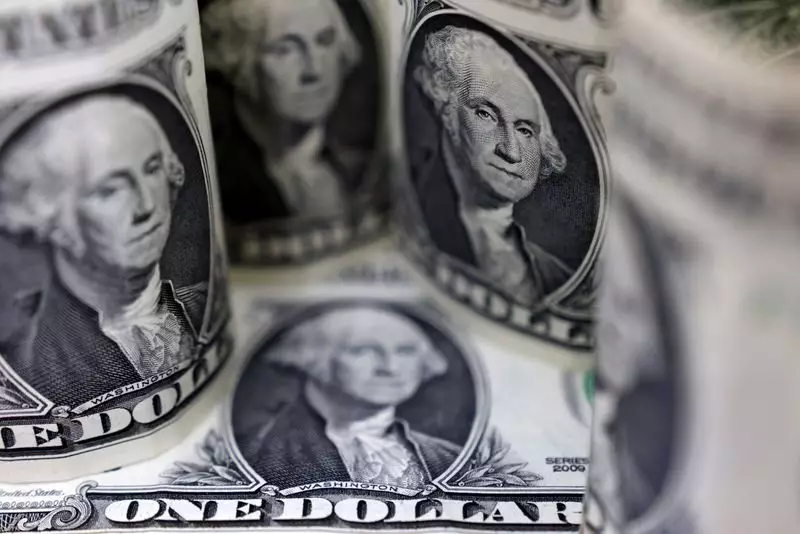The dollar saw a slight decline following Federal Reserve Chair Jerome Powell’s indication that the U.S. central bank is nearing a decision to cut interest rates. Powell emphasized the need for further declines in inflation before making a final decision. This cautious stance taken by Powell comes as the consumer price index (CPI) data is set to be released, with expectations that headline prices have eased on an annual basis in June.
Despite acknowledging that inflation has not moved sustainably down to the 2% target, Powell expressed confidence but stated that he would need to see more trends, especially with the upcoming CPI report. Market experts like Karl Schamotta noted Powell’s cautious approach in his testimony before Congress, highlighting the risks that the U.S. economy currently faces. Powell’s narrative, while somewhat dovish, hinted at a possible rate cut in the near future, leading to improved risk appetite in the markets.
Traders are now placing around a 73% probability of a rate cut by September, with a second cut likely by December. While expectations for a weakening dollar are on the rise, traders are hesitant to fully price in this scenario until more certainty is reached. This cautious sentiment is also influenced by the fact that U.S. interest rates are still higher compared to other major currencies, leading to a wait-and-see approach among investors.
The euro saw a slight gain against the dollar amid political uncertainty in France following a hung parliament. The Japanese yen, on the other hand, strengthened as it approached a 38-year high against the dollar due to interest rate differentials between the U.S. and Japan. Market participants are closely monitoring the Bank of Japan’s tapering plans, which could impact the yen’s strength going forward.
The Bank of England indicated a possible interest rate cut in the future, leading to a four-week high for the sterling. Meanwhile, the Reserve Bank of New Zealand left rates unchanged but hinted at potential rate cuts if inflation slows down. This shift in policy stance influenced the kiwi’s drop against the dollar, reflecting market expectations and central bank decisions.
In the cryptocurrency market, bitcoin experienced a slight decline amid broader market movements influenced by central bank policies and economic indicators. The volatility in cryptocurrencies underscores the interconnectedness of global markets and the impact of key financial events on digital assets.
Overall, Jerome Powell’s comments and the subsequent market reactions highlight the importance of central bank communication and the impact it can have on currency movements and investor sentiment. The evolving economic landscape requires market participants to stay informed and adapt to changing conditions to navigate the complexities of the global financial system.


Leave a Reply